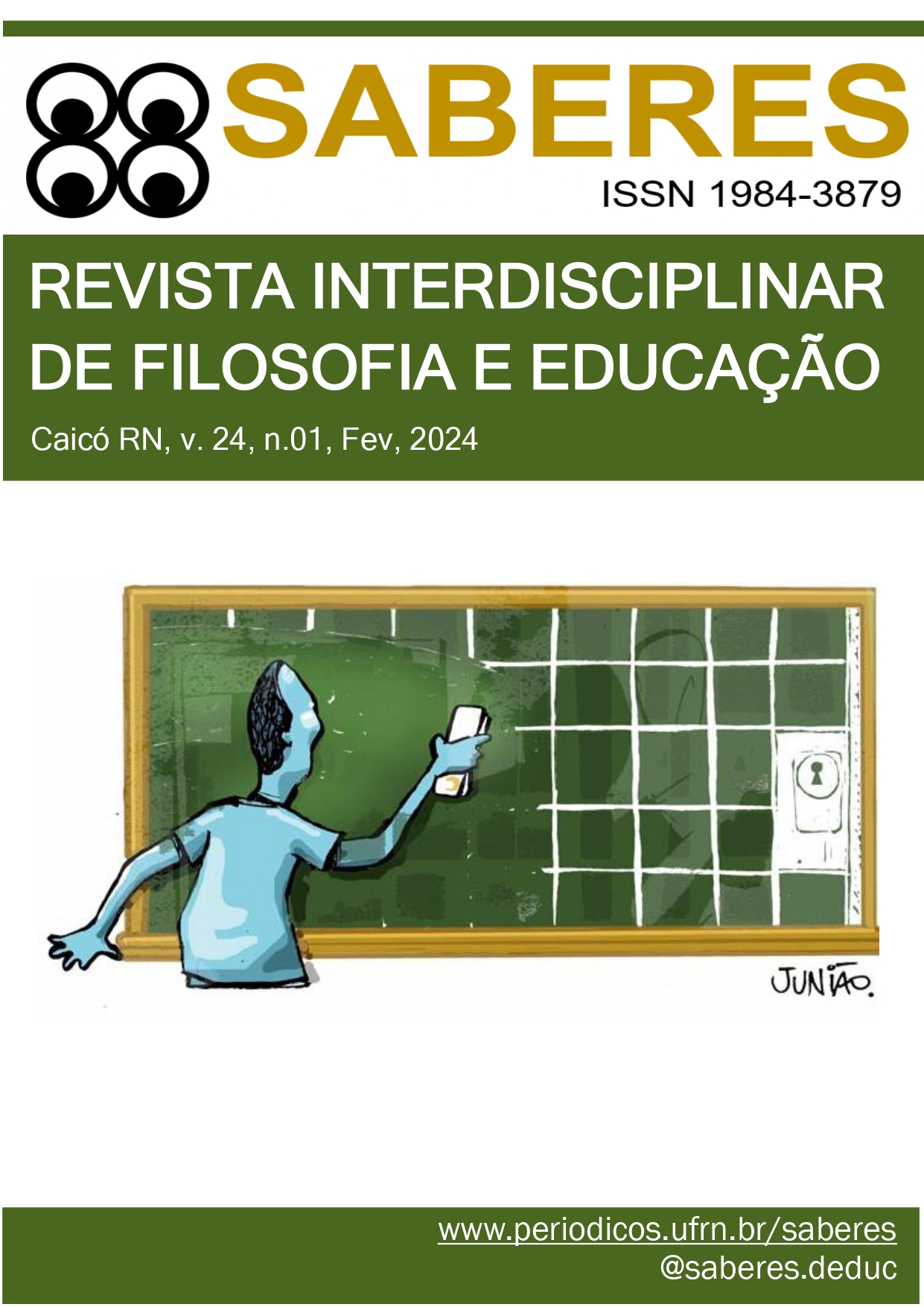THINKING ABOUT A DECOLONIZING EDUCATION FOR GUINEA-BISSAU FROM THE EXPERIENCE OF HISTORICALLY COLONIZED PEOPLE
DOI:
https://doi.org/10.21680/1984-3879.2024v24n1ID35153Keywords:
Guinean Education, Critical Thinking, Paulo FreireAbstract
This work adresses the historical contexto of Guinea-Bissau in conjuction with the developement of education historically and the observe needs/demandas of an education that needs tô bê effectevely consolidated as less colonial in the country. For this analysis we chose the bibliographic research as a way to raise a debate about the referentes and presenting the weaknesses/feeblenesses of the Guinean educational system, in addition tô presenting some solutions to critical thinking in education. It was understood in the course of the discussion that severa problems constitute/establish the weaknesses/debilities and limitations of the Guinean educational system, however the problems do not originate only in the economic condition as the country is presented to the world, but rather and above all, in the colonial patterns that were part of the historical process of European colonization around the world ant that are still part of Guinean educational thinking and a good layer of its political class permeated by mental colonialism and the colonialities of power, knowledge and being.
Downloads
References
AZURARA,G.E. Chronica do descobrimento e conquista de Guiné. Paris: J. P. Aillaud, 1841. Disponível em: https://www.literaturabrasileira.ufsc.br/documentos/?action=download&id=136761
Acesso em: 16 jan.2024.
BARBOSA, R.A. La-le-li-lo-luta: a experiência de um professor brasileiro na Guiné-Bissau. São Paulo: Achiamé, 1984.
BARROSO JÚNIOR, R. S. Nas rotas do Atlântico equatorial: tráfico de escravos rizicultores da Alta-Guiné para o Maranhão (1770-1800). 2009. Dissertação.(Mestrado em História) - Programa de Pós-Graduação em História da Universidade Federal da Bahia, Salvador, 2009.
CUSICANQUI, S. R. Un mundo Ch’ixi Es Posible: ensayos desde un presente en crisis. Buenos Aires: Tinta Limón, 2018.
DUSSEL, E. 1492: o encobrimento do outro: a origem do mito da modernidade. Petrópolis/ RJ: Vozes, 1993.
FREIRE, P. Cartas à Guiné-Bissau: registros de uma experiência em Processo. 2. ed. Rio de Janeiro: Paz e Terra, 1978.
FREIRE, P.. Pedagogia do oprimido. 17.ed. Rio de Janeiro: Paz e Terra, 1987.
INDJALÁ, S. Educação na Guiné-Bissau: análise das produções acadêmicas. 2019. Dissertação. (Mestrado em Educação) - Programa de Pós-Graduação em Educação, Universidade Metodista de Piracicaba, Piracicaba, 2019.
QUIJANO, A. Colonialidade do poder, eurocentrismo e América Latina. In: LANDER, E. A colonialidade do saber: eurocentrismo e ciências sociais: perspectivas latino-americanas. Buenos Aires: CLACSO, 2005. p.201-248.
SEMEDO, R. J. C. G. PAIGC: A face do monopartidarismo na Guiné-Bissau (1974-1990). 2009. (Mestrado em Ciência Política) - Programa de Pós-Graduação em Ciência Política da Universidade Federal de São Carlos, São Carlos/SP, 2009.
SEGATO, R. L. La Nación y sus Otros. Buenos Aires: Prometeo, 2007.
Downloads
Published
How to Cite
Issue
Section
License
Copyright (c) 2024 Saberes: Interdisciplinary Journal of Philosophy and Education

This work is licensed under a Creative Commons Attribution-NonCommercial-ShareAlike 4.0 International License.
Este obra está licenciado com uma Licença Creative Commons Atribuição 4.0 Internacional.
Autores que publicam nesta revista concordam com os seguintes termos:
a. Autores mantém os direitos autorais e concedem à revista o direito de primeira publicação, com o trabalho simultaneamente licenciado sob a Licença Creative Commons Attribution 4.0 que permite o compartilhamento do trabalho com reconhecimento da autoria e publicação inicial nesta revista.
b. Autores têm autorização para assumir contratos adicionais separadamente, para distribuição não-exclusiva da versão do trabalho publicada nesta revista (ex.: publicar em repositório institucional ou como capítulo de livro), com reconhecimento de autoria e publicação inicial nesta revista.
c. Autores têm permissão para publicar e distribuir seu trabalho online (ex.: em repositórios institucionais ou na sua página pessoal) após a publicação inicial nesta revista, já que isso pode gerar alterações produtivas, bem como aumentar o impacto e a citação do trabalho publicado (Veja O Efeito do Acesso Livre).
Foram feitos todos os esforços para identificar e creditar os detentores de direitos sobre as imagens publicadas. Se tem direitos sobre alguma destas imagens e não foi corretamente identificado, por favor, entre em contato com a revista Saberes e publicaremos a correção num dos próximos números.


 English
English Español (España)
Español (España) Português (Brasil)
Português (Brasil)



